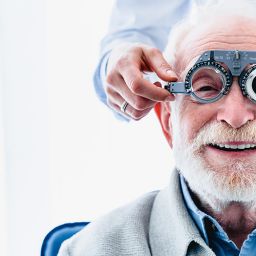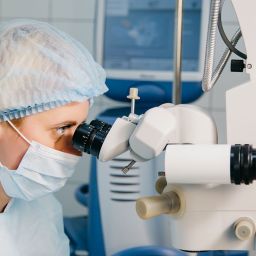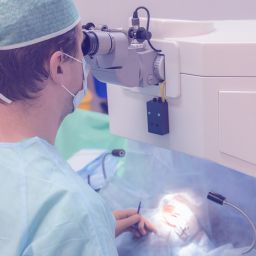
Commonly Asked Questions About Lasik Eye Surgery
LASIK eye surgery is one of the topics that people will always have concerns about. And with good reason too!
After all, it involves lasers and your eyes. Those two things don’t sound like they should go together on paper.
Yet, it is a revolutionary treatment method that has helped many. Sadly, it is also the cause of anxiety in many patients.
It is normal to feel uneasy about LASIK. And that is where detailed FAQs come to help. The answers to these questions are ideal for patients with concerns or little knowledge about LASIK.
The answers to these questions will empower you with information, reduce anxiety, and make you feel more confident about your procedure.
So scroll down for some of the frequently asked questions about LASIK and their answers.
FAQs About LASIK Eye Surgery
1. What does LASIK mean?
The term LASIK is an acronym for laser in situ keratomileuses.
‘In situ’ is Latin for ‘in the normal place.’ Medically, it means ‘confined to the original site, without touching the neighboring tissues.’
‘Kerato’ is Greek for ‘cornea’ while ‘mileusis’ is Greek for ‘to shape.’
Therefore, the term means ‘to use a laser to reshape the cornea without invading the adjacent cell layers.’
2. Is LASIK surgery right for me?
LASIK surgery has the potential of getting rid of glasses and contacts. However, there are a few basic requirements that qualify you for LASIK.
First, you must be above the age of 18 years old. You will also need a stable eyeglass prescription for at least two years.
You need to be free of any active eye diseases and have a healthy cornea. You will also need to have a best-corrected vision of at least 20/40.
3. What does LASIK treat?
LASIK is used to treat refractive error problems. When light does not focus on your retina as it should, your vision becomes blurry. This is called a refractive error.
LASIK treats different types of refractive errors:
- Myopia. Or shortsightedness is when you see close things clearly, and further ones as blurry.
- Hyperopia. Or long-sightedness is when you see distant objects clearly and close objects as blurry.
- Astigmatism. It makes everything blurry due to the shape of the eye.
4. Is LASIK safe?
Despite the ‘scary’ concept of LASIK, it is entirely safe. The FDA has approved LASIK as an effective procedure for treating refractive errors.
As long as you meet all the requirements for LASIK, the surgery is safe for you. In fact, the risk of sight-threatening complications is less than 1% overall.
Just be sure that you meet the requirements to avoid complications and get great results.
5. Does LASIK hurt?
You would be surprised just how painless LASIK surgery is. Many patients note how pain-free the procedure is.
Every patient receives plenty of anesthesia drops that completely numb the eyes. The doctor will ensure this.
When the procedure begins, you will feel light pressure around the eyes. Additionally, you will feel a gritty sensation after the procedure, like an eyelash in the eye.
6. How much does LASIK cost?
LASIK eye surgery costs anywhere between $2000 and $3,000 per eye. On average, most patients spend $2,500 per eye on LASIK.
The cost varies depending on institutions and surgeons. One of the factors that affect pricing is laser equipment.
Some institutions have to rent the equipment needed to perform the surgery. Equipment is rented on a time basis, increasing the overall cost.
7. Is LASIK safe for pregnancy?
Lasik surgery is not ideal for anyone pregnant. This is because of the hormones present during pregnancy.
These hormones can change the shape of the cornea or lens. This change creates the risk of inaccuracy.
Therefore, it is advisable to wait three months after delivery for your surgery. LASIK does not affect breastfeeding.
Besides this, there is no evidence that shows LASIK is harmful to unborn fetuses.
8. How long will LASIK results last?
Following LASIK eye surgery, you should experience permanent vision correction. It means that the results will last a lifetime.
In some cases, the procedure may not fully correct the refraction error or overcorrect it. Therefore, a surgeon can perform an enhancement surgery four months after the procedure.
Additionally, age-related changes in your eyesight can occur whether or not you had LASIK.
9. What is the recovery time for LASIK?
The recovery time for LASIK is between 1 and 7 days.
However, vision comes quickly after surgery. You should experience functional vision within 24 hours of the surgery. Over the next few days, your eyesight will improve, up to one week.
Visual stability, however, varies from person to person. Some people regain stability a month after the surgery. At the same time, others regain it three months later.
10. Can I get LASIK on both eyes?
You can get LASIK surgery in both eyes in one session. Most people think you have to get individual procedures, but this is not the case.
You can choose to get your surgery on individual eyes on different days. However, there is no need for it.
In fact, performing LASIK on separate eyes is not advisable since you will lengthen your downtime.
11. What are the side effects of LASIK?
LASIK’s most common side effects are dry eyes, sensitivity to light, plus glare or halos in your vision.
However, these are immediate side effects that subside over time. Additionally, doctors can provide you with solutions that manage these side effects.
Risks associated with LASIK are overcorrection and undercorrection. However, it is very minimal, and a doctor can correct it a few months after the surgery.
Blindness can only occur if there is a severe issue such as scarring or infection. However, it is very unlikely. Still, doctors will prescribe antibiotics to prevent it.
12. Where can I get LASIK?
You can get LASIK from a certified and reliable institute. Ensure that a qualified and experienced LASIK surgeon performs your procedure.
Anaheim Eye has qualified surgeons that can perform LASIK. You can come in for a consultation on the way to having perfect vision. We promise to take great care of you.











